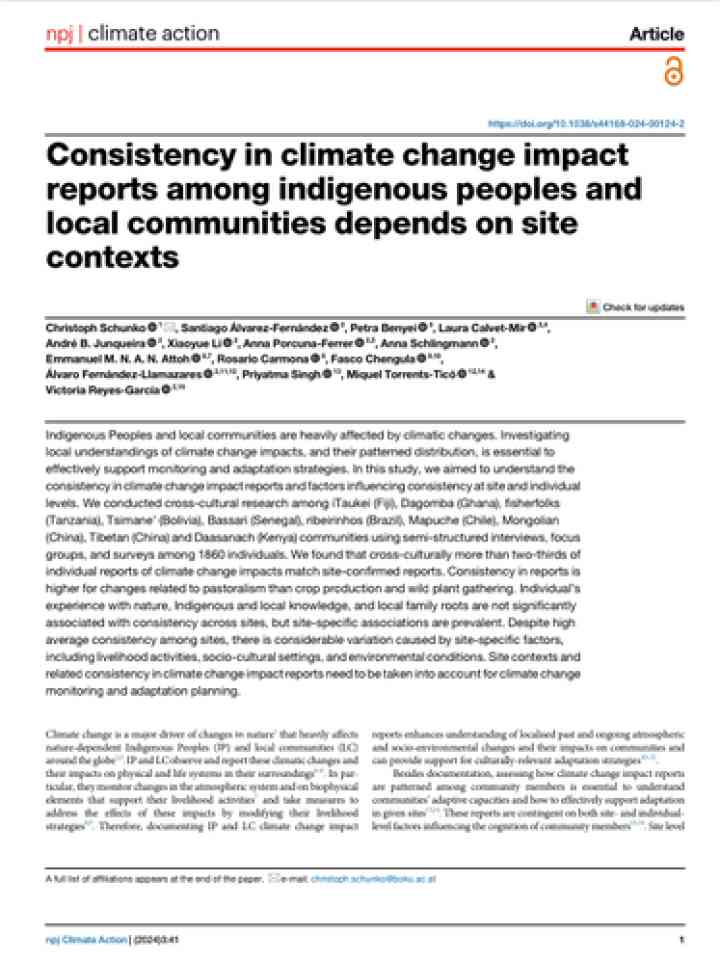Consistency in climate change impact reports among indigenous peoples and local communities depends on site contexts
In this study, the authors aimed to understand the consistency in climate change impact reports and factors influencing consistency at site and individual levels with Indigenous Peoples and local communities. The cross-cultural research was conducted among iTaukei (Fiji), Dagomba (Ghana), fisherfolks (Tanzania), Tsimane’ (Bolivia), Bassari (Senegal), ribeirinhos (Brazil), Mapuche (Chile), Mongolian (China), Tibetan (China) and Daasanach (Kenya) communities using semi-structured interviews, focus groups, and surveys among 1860 individuals.
The authors find that, cross-culturally, more than two-thirds of individual reports of climate change impacts match site-confirmed reports. Consistency in reports is higher for changes related to pastoralism than crop production and wild plant gathering. Individual’s experience with nature, Indigenous and local knowledge, and local family roots are not significantly associated with consistency across sites, but site-specific associations are prevalent. Despite high average consistency among sites, there is considerable variation caused by site-specific factors, including livelihood activities, socio-cultural settings, and environmental conditions. Site contexts and related consistency in climate change impact reports need to be taken into account for climate change monitoring and adaptation planning.
Explore further
